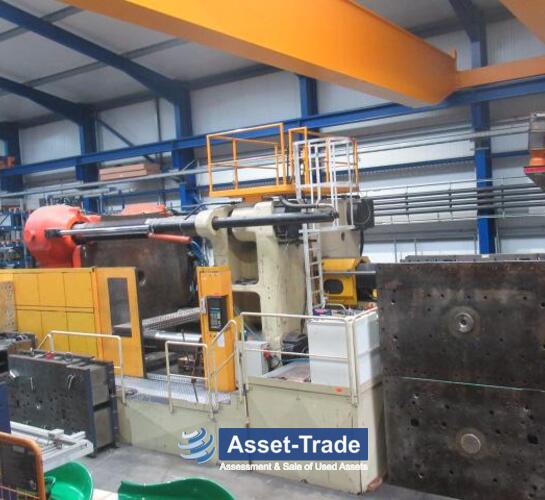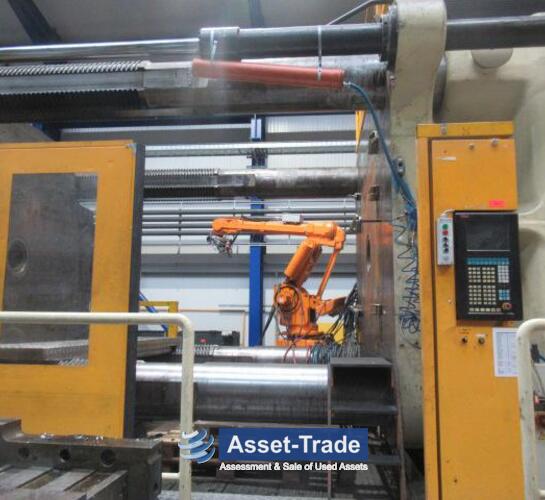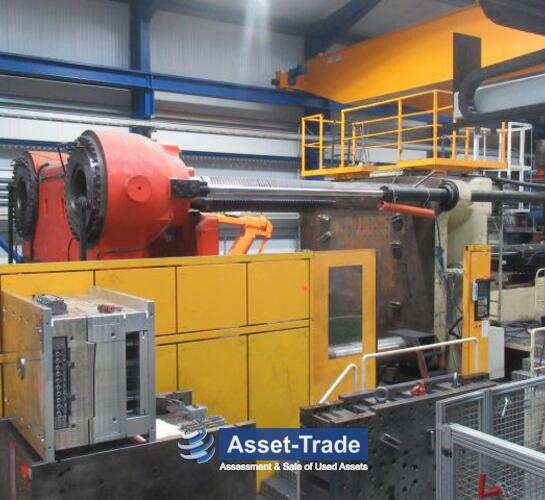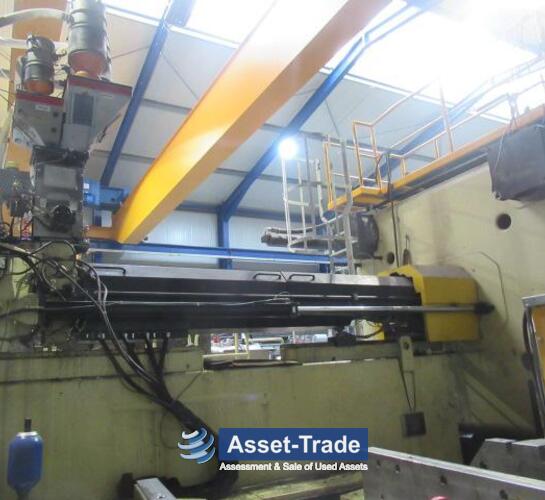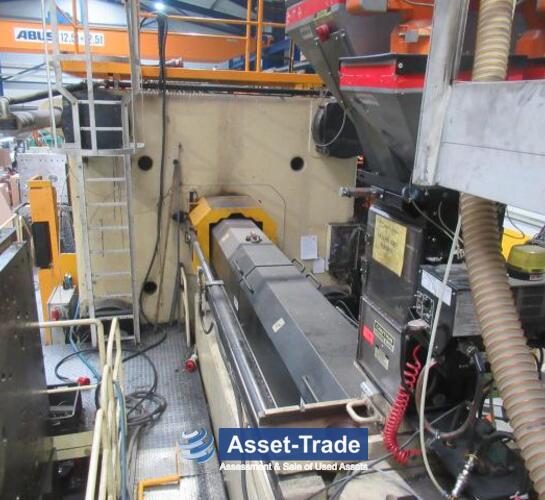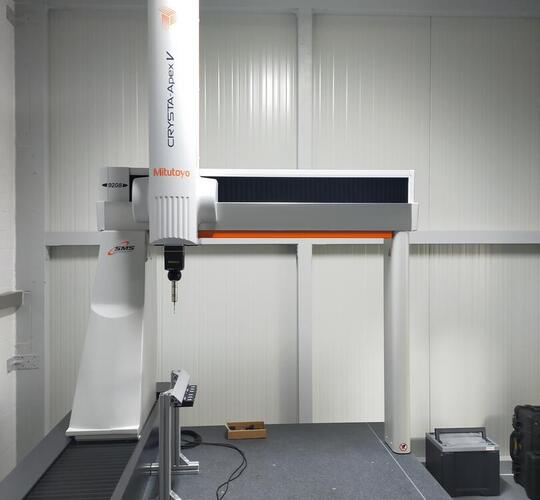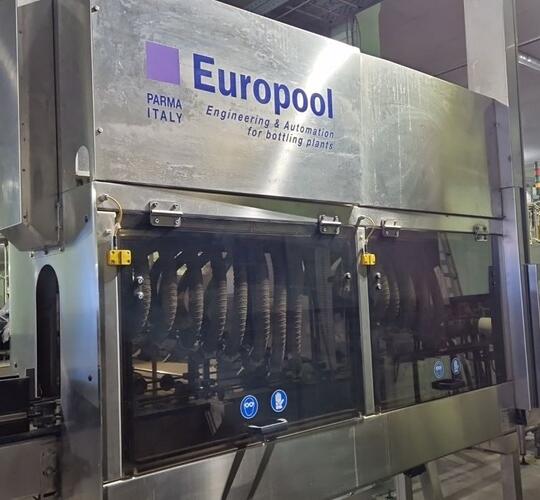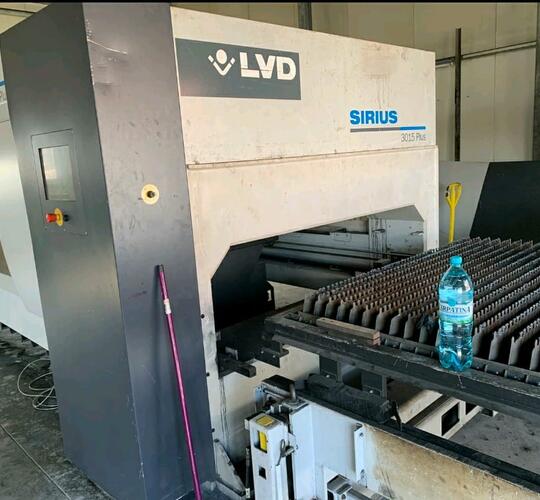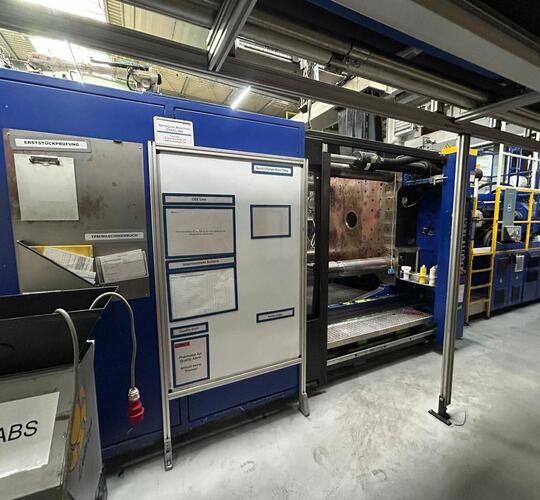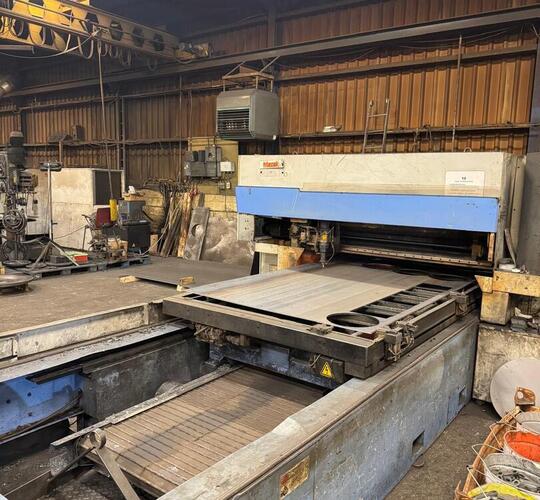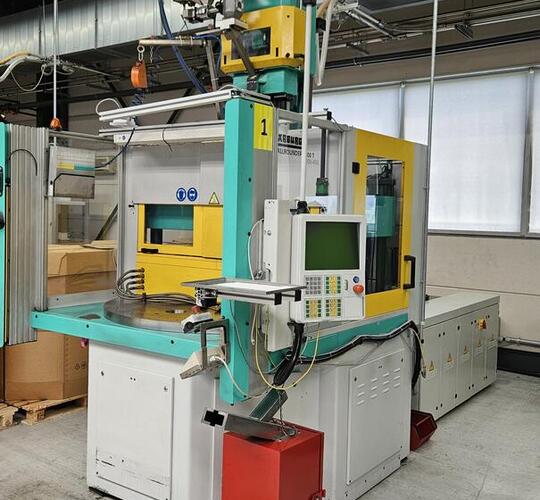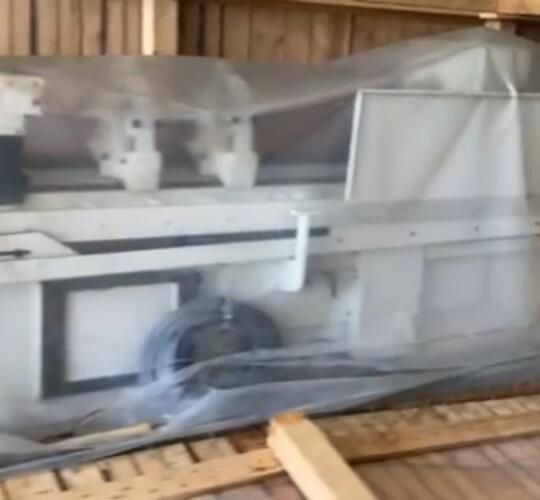This great HUSKY EL4000RS170/145 Injection moulder 4000tons is unfortunately already Sold.
Discover further Plastics Processing » Injection Molding Machines machinery, or Contact us for further help.
Machine Details:
Technical Details:
-
Control:
-
Machine Hours:76,650 hrs.
Description:
This great HUSKY EL4000RS170/145 Injection moulder 4000tons is unfortunately already Sold.
Discover further Plastics Processing » Injection Molding Machines machinery, or Contact us for further help.
Used HUSKY Type EL4000RS170/145 - Large Injection moulding machine with 4000 tons
- Operating hours: approx. 76,650 std
- Husky CNC Controller
Technical data:
- Clamping force: 4,000 t / 40000 KN
- max. injection volume: 12,385 cm³
- max. injection weight: 10,750 g
- tie bar spacing (horizontal/vertical): 1,950/2,550 mm
- Installation height: min./max.: 500/1,100 mm
- max. opening stroke: 3,416 mm
- Screw Ø: 145 mm
- max. engine power: 370 kW
- Machine weight: 238,000 kg
retrofitted 14-fold cascade control (in control system)
- 1 metering unit Manufacturer: MP1
- with 2 conveyors MOTAN
- 1 conveyor belt manufacturer: WEIDMANN/SCHUMA, year 2003, approx. 160x800 cm
- 1 handling robot manufacturer: ABB, type IRB6400M98, year 2002 with control cabinet
Product introduction: Husky EL4000RS170/145 4000 tonne injection moulding machine.
This machine is equipped with a Husky Control unit and has a clamping force of 40000 kN. In the past, this machine has mainly worked for Automotive with polypropylene.
For automotive manufacturers, Husky solutions bring exceptional precision and strength to molded parts such as bumpers and grilles, tail lamps, dashboards, cup holders, and controls. Whatever consumer goods you are looking to mold, Husky helps you produce them with higher quality at lower cost and faster cycle times.
The Husky EL4000RS170/145 injection moulding machine with a capacity of 4000 tonnes is a powerful and reliable solution for industrial injection moulding production. With its impressive technical specifications and robust design, it offers a wide range of benefits for companies looking to produce high-quality plastic products.
Husky's injection moulding machine is characterised by its high precision, efficiency and flexibility. With a clamping force of 4000 tonnes, it is capable of handling large and complex moulds with ease. This enables the production of products in different sizes and shapes, from small plastic parts to large industrial components.
An outstanding feature of this injection moulding machine is its advanced control technology. With an advanced control panel, users can make precise settings for temperature, pressure and speed to achieve optimal results. The intuitive user interface makes it easy to operate the machine and monitor the production process.
In addition, the Husky EL4000RS170/145 injection moulding machine offers high production speed, resulting in increased efficiency and improved yield. With its fast responsiveness and short cycle times, it enables faster production of large volumes. This is particularly beneficial for companies that require high production capacity to meet increasing market demands.
The machine is also equipped with advanced melting systems that allow precise control of the melting temperature and viscosity. This helps to improve the quality of the parts produced and minimise scrap. The Husky EL4000RS170/145 injection moulding machine thus ensures consistent product quality and contributes to customer satisfaction.
Another advantage of this injection moulding machine is its high reliability and durability. Husky is known for producing high-quality industrial machines that can withstand the most demanding requirements. The EL4000RS170/145 is no exception. With its solid construction and high-quality components, it is designed for continuous operation, minimising downtime and maintenance costs.
The Husky EL4000RS170/145 injection moulding machine is also prepared for the demands of Industry 4.0. It can be seamlessly integrated into networked production environments and enables remote monitoring and control of the production process. This helps to increase efficiency and optimise production processes.

